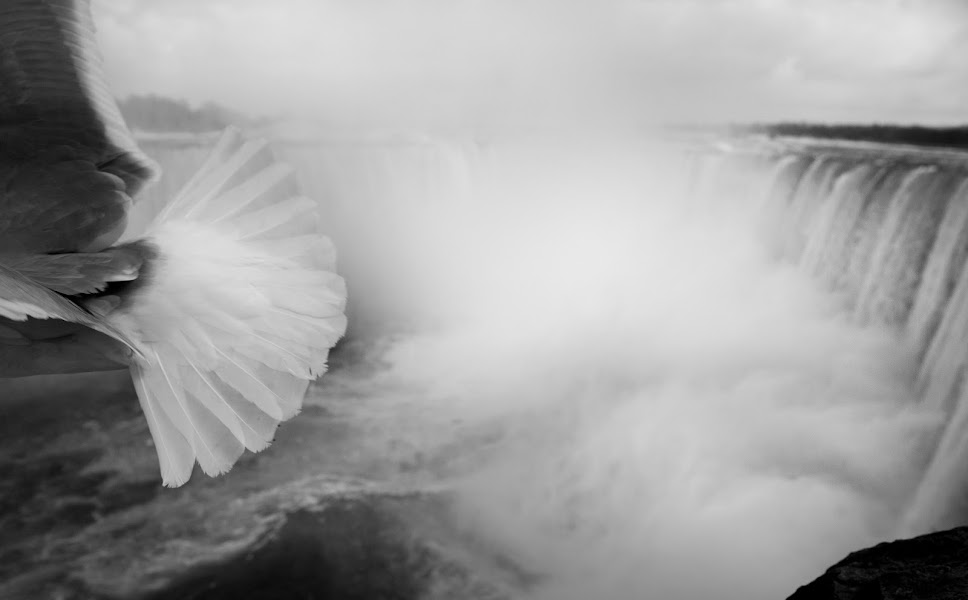This past weekend I teamed up with Globe and Mail ace designer Cinders MacLeod to speak at the World Press Photo 2006 Winning Images exhibit in Toronto.
The speakers series for this exhibit tends to be a rather casual affair, with some in attendance planning their visit to view the fantastic images so they can take in a speaker or two as well.
As with every contest held anywhere in the world, there will always be disagreements with the judges' results, but there is no denying the quality of the winning images, and the efforts made by World Press Photo to have the winning images available for viewing around the world. Thanks to the efforts of the Toronto organizer Lesley Sparks the exhibit has come to Toronto for the past several years.
I appreciated Lesley's invitation to speak, but to say I felt somewhat intimidated speaking in front of some of the worlds best images from last year would be an understatement. But Cinders and I were asked to bring the topic of photojournalism to a more local level and speak about how images make it into our newspapers, or in many cases, do not make it - and of course, some of the reasons why.
As I did that day I will do here, and that is to take the opportunity to explain my feelings about the investment photojournalists make into the images they produce, and the unspoken contract or obligation that many of us feel toward the people whose lives touch us.
Cinders and I spoke of course about the disappointment that everyone feels when good images don't make it to the printed page, or to an organization's website. But I expanded the idea somewhat with a story about a recent conversation I had with an editor at The Globe and Mail.
After an intense week of working on a single multi-media project, pouring through images, and listening to hours of audio, fellow east-coaster, and a keen photo editor, Jayson Taylor looked at me and simply said, with emotion, "I really feel like I know these people."
His comment stopped me cold, and I took the opportunity to share this with him.
Beyond the investment of time and expense, the sacrifices, the risks, and more, that photojournalists endure daily to shed light on every sort of story imaginable, there is also an emotional investment that largely goes unnoticed. Bearing witness, and not just watching, but immersing oneself into stories day to day, can be difficult for anybody, and may even take a toll over the years. But implicit with this is the relationship that develops between journalists and the people whose lives we enter into. This relationship may be forged over long periods of time, or may simply last as long as a single moment of eye contact.
When we work; when we are doing our jobs amid the joy or chaos of other peoples' lives, there is an unspoken trust and understanding that roots itself in the minds of all concerned. As journalists we have an obligation to report in an honest, accurate, and compassionate way, and in the eyes of the people we photograph there is a need to trust that we will do right by them. That we will somehow tell their tale and if it does nothing else, at least it will be an accurate account of this moment in their lives. This is never discussed. Never debated. But as a human being, this is what we owe one another.
So when all of the images have been made and the editing begins some very hard decisions have to be made. Whether it is a business portrait, or a heart-wrenching story, it is always difficult to see your images miss the cut. Editors are used to photographers being upset when this happens, but our disappointment isn't just about our images not getting into print. It isn't just about our egos.
In our minds there is a sense that by failing to get an image the paper, somehow we have let someone down. We are the ones who shake people's hands, demand the ridiculous, smell the stench, and sometimes cry the tears. For the people who give us their time, the ones who might take the extra step to help us make an interesting image, the people who stare up at you from their own suffering, or perhaps the ones whose eyes will never see again, we feel an obligation to tell their story, and to somehow live up to our end of that unspoken contract by getting their story, and their images published.
When this does not happen many of us feel that somehow that we have let someone down.
I know I do.


No comments:
Post a Comment